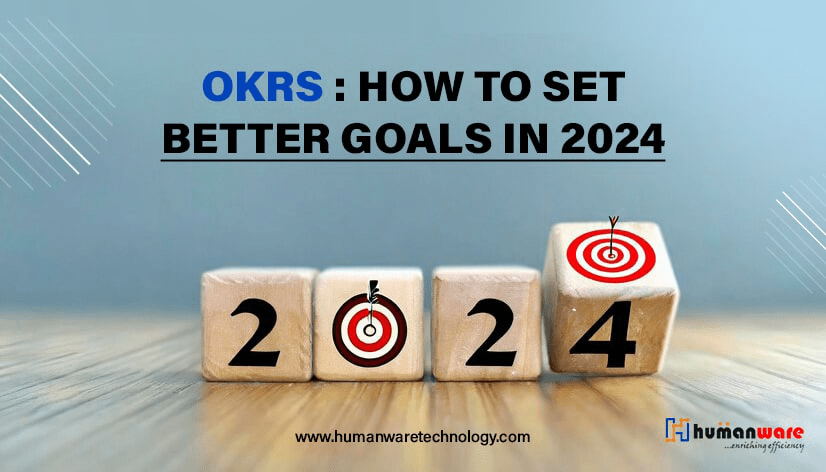
OKRs : How to Set Better Goals in 2024
One framework that has gained importance in recent years is the Objectives and Key Results (OKR) methodology. Understanding how to harness the power of OKRs can be a game-changer for companies seeking excellence. Traditionally, companies set high-level organizational goals at the beginning of the year and everyone forgets about them a month later. This leads to passive management. It is increasingly difficult for leaders to measure and track their employees' progress and the achievement of goals. Leaders and managers have difficulty understanding which teams or individuals are catching up, ahead, or not. It's difficult to connect disparate teams and people and break down goals into business goals, leaving people feeling disconnected from the bottom up. There is no clarity among employees about how their actions relate to what is important to the organization. It is also difficult to build a measurable, predictable and repeatable business model that works this way. Today, many companies have adopted OKR goal setting methodologies, techniques for tracking OKRs, and maintaining goal alignment.
OKR Definition and Meaning
OKR is a goal setting platform that originated at Intel and has been widely adopted by companies like Google. At their core, OKRs are a simple but powerful tool designed to align individuals, teams, and organizations around common goals and track progress through measurable key results. Goals are ambitious and qualitative goals, while key results are specific and measurable results that indicate achievement of the goals.
How to Create OKRs
Creating effective OKRs requires a structured approach to goal setting. Start by setting clear, inspiring goals that align with your organization's mission and vision. These goals must be ambitious and focused on the team. Then identify key results – measurable milestones or achievements that indicate progress toward goals. Key results should be specific, time-bound and measurable, providing a clear benchmark for success.
Example:
Objective: Improve Customer Satisfaction
Key Results:
- Achieve a Net Promoter Score (NPS) of 75 at the end of the quarter.
- Reduce customer service response times to less than 24 hours.
- Vous pouvez recevoir un client récent sur la plateforme Internet ou 20%.
This example shows a well-structured OKR with a clear goal and specific key results that can be objectively measured.
Benefits of OKR Framework
- OKRs aid with measurement, accountability, and transparency.
- With OKRs, analyze the root causes why objectives are not achieved.
- Align and connect employees to fulfill corporate goals.
- Confidently set clear and specific goals for individuals.
- Give clear direction to Boost individuals’ engagement and empowerment through your goal-setting process.
- OKRs capture cross-functional dependencies across groups in different departments.
- Increase insight and transparency across the organization for top to bottom level executives.
- OKRs help to use regular weekly updates to gain vision and insights.
- Monitor how goal progress aligns with the company’s vision, strategy, and top priorities.
- OKRs make it simpler to monitor and act fast to achieve organizational goals.
FAQ of OKR Framework
Conclusion
OKRs prove to be a valuable tool for organizations that want to set and achieve meaningful goals. By providing a clear framework for setting goals, ensuring alignment, and promoting adaptability, the OKR framework allows companies to thrive in an ever-changing environment. Whether applied at an organizational, team or individual level, OKR principles provide a roadmap to success by creating a culture of accountability, innovation and continuous improvement. As you begin your year-long journey, consider adopting the OKR methodology to improve your goal-setting strategies and achieve unprecedented success.